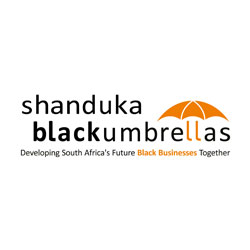In conversation with
Ms. Seapei Mafoyane
CEO | Shanduka Black Umbrellas

FDI Spotlight: What is the role of Shanduka Black Umbrellas in South Africa and what is your regional footprint and impact today?
Seapei Mafoyane: The main role of SBU is to regenerate the South African economy, which we will do through small business development. On a fundamental level we understand the role that small businesses play and we have seen their impact on developing economies, as well as the impact larger businesses, which started small, have had on leading economies around the world.
The power of small businesses is that they come from a place of innovation born out of neccessity. They introduce new industries and are run by dreamers and audacious people that want to change the world, and often do. These are the disruptors and the people we are looking to back.
We also want to change the history of small business in South Africa. If you understand where this country comes from, the conversation around small businesses and its impact is not always a grand story to tell. For example, my family was mortified when I left my stable banking job to join this agency that develops entrepreneurs. In Apartheid South Africa, the entrepreneurs were the people standing on the street selling fruit and vegetables. They were the survivalists, largely seen as failures trading on the periphery of the economy, somewhat ostracised from society.
The norm was that when you were educated, you go to school, get a degree and do your parents proud, and then you get a job that you stay in until retirement and get a gold watch at the end if you are lucky. Therefore we need to start changing the language and experience of what entrepreneurship is.
We are the first generation that is daring to do that in South Africa. Our parents come from a time that emphasised vocations such as teachers, lawyers and doctors, and even then, they were not allowed to specialise in their chosen field. This was what black people were allowed to be at that time. Being a teacher was regarded as a special position because it meant that you could put your own children through school. As a doctor, if you wanted to specialise, you had to leave the country.
This is where we come from and why our parents hold education so highly. I think where South Africa went wrong is the total exclusion of the entrepreneurial conversation, it is not seen as part of the educational tapestry of our nation. It is something that needs to change and quickly at that.
There is definitely still a place for the street vendors, the survivalists, but they are not going to change the economy and the conversation the way we need it to change at this time.
What are you as SBU doing to address changing the language of South African entrepreneurship?
Seapei Mafoyane: At SBU, we call ourselves an entrepreneurship agency, which we do through business incubation. It is only one of the elements – there are many ways to do it. Shanduka runs one of the biggest incubation businesses in the country, with nine hubs around the country. We have managed to go into some of the most rural areas and have been able to make magic.
Business incubators in the European and American context – even throughout SADC – are really far more developed than what we are doing in South Africa. What we do here primarily is a really simplistic, shared space conducive for entrepreneurs to conduct their business.
Many countries such as Malaysia are at least five to ten years ahead of us and there is a lot of talk about the use of technology and a big push towards that. However, you still need basic space when it comes to business and business incubation, especially in South Africa. Again, you need to consider where the country comes from. The majority of South Africans come from townships, and during the Apartheid years they lived in very small spaces. Therefore, unlike in many international countries, they do not have a room given to them by their parents to start a business or the money to create a space to start a business.
In the South African context, the biggest reason for a business failing is the lack of infrastructure. Many entrepreneurs are trying to run a business from the back of a car. The challenge with this is that, when you want to deal with corporate South Africa, they will perceive these individuals as unstable and risky. If corporate South Africa has to deal with someone who is running their business from their car, who comes from somewhere like Alexandra and who does not have a proper space to operate from, alarm bells start to go off immediately.
This is why we made it our core business to set up the incubator hubs in metro areas for entrepreneurs so that whoever our entrepreneurs choose to do business with, they can verify the fixed address from our location. Furthermore, as the name and reputation of Shanduka Black Umbrella carries a lot of weight and respect amongst the business community, corporate South Africa can take assurance that we are vouching for these entrepreneurs. It also allows entrepreneurs to use technology, even just a laptop or computer, which some of them use for the very first time. It is amazing how some businesses have flourished when the barrier of technology was taken away.
Another important element is our mentorship structure. One problem with mentoring in South Africa is that, while there are many people who want to help and pass on their knowledge, they do not know where to go. That is where our mentorship programme comes in: we try to connect the dots between those entrepreneurs who are doing what those burgeoning entrepreneurs want to be doing in the future.
The mentorship programme is quite dynamic and satisfies two components: the first aspect is that our entrepreneurs are getting exposure to the sectors and industries of interest, whilst familirizing themselves with the corporate environment and what it is like to run a business. The second is the ability and opportunity to tap into the mentor’s network, which allows our entrepreneurs to leverage the capabilities and network of our mentors, enabling accelerated growth. Something that might be incredibly challenging for a new businesses owner, might be very easy for someone who has been in the business a long time, just by our mentors picking up the phone. It is a core component of the work we do and where we see ultimate success.
What is very important and an absolutely crucial part of the success of any business is understanding the expectations of your target market. The fact is that the primary market here is corporate South Africa, who generally do not want to deal with small businesses. Someone who works in a big bank does not neccesarily want to spend their days listening to small business owners who can only offer one product or solution – they are looking for integration of the value chain.
Therefore what we do is we act as a big brother. Through our relationships with leading national corporations, we present what our entrepreneurs have to offer as an integrated complete solution. We also provide the comfort to these corporations that if any large challenge were to occur, there is a trusted partner that they can come to. Through our host of services, big businesses such as Anglo American are assured that when they invest in a smaller company things will run smoothly and their core business dealings will not be affected.
What do you think you can do to encourage entrepreneurs to have more of a regional focus and capitalise on the large population of the SADC region?
Seapei Mafoyane: It really is about economies of scale. It is fundamental for budding entrepreneurs is to be aware of the environment around them.
South Africa is one of the most vibrant economies in Africa. However, we have a population of only 55 million, which means entrepreneurs invariably must look outside of the country for greater growth potential. A regional approach can start at home. The beauty of getting involved with large corporations in South Africa is that there is a good chance that they are already doing business in Africa, and so regional best practice can be learnt and applied.
By having a regional perspective, the potential demand of products and services is magnified, but it is only through understanding the nuances of each country and customer, can it be successful.
I always say that entrepreneurs should employ a market orientation approach and to interact with customers to get an understanding of what their requirements are. Entrepreneurs need to go to their customers with a holistic approach, fitting in to exactly what their clients needs are.
Small businesses cannot afford to be unmalleable and short-sighted. It is why they will go out of business. As a small business owner, you need to understand that you cannot rely on only one company and what you offer today might be obsolete tomorrow.
Do you see a necessity to reach out to other incubation hubs and their leaders in order to benchmark or gain greater investment through partnerships?
Seapei Mafoyane: I absolutely do and I reach out to other incubators all the time. You have to push yourself and one way to do that is to benchmark your standards against international ones.
We belong to the International Business Innovation Association (InBIA), which is a fantastic network to be a part of. InBIA is a global non-profit organisation that represents over 2,200 entrepreneurship support organisations. Their networks extend over 62 countries, which enables them to provide industry best practices through education while enabling collaboration, mentorship, peer-based learning and the sharing of innovative ideas for entrepreneurs across the globe.
When I look at the South African context where 90 out of every 100 black owned small businesses fail within the first 24 months of existence, I am more than tripling the national average because we have a 70 % success rate through our programme. I could sit back and accept that or I can look at what is being done abroad to set our sights to a success rate of 90 % and apply the same methods or components to what we are doing. It is important to constantly ask yourself what you need do to improve your business and improve your results. We are trying to develop entrepreneurs that are going to operate in geographies all around the world. For them to stand a real chance of succeeding, they need to understand how competitive their global counterparts are.
Entrepreneurs are very cushioned in South Africa, mainly due to our Broad-Based Black Economic Empowerment (B-BBEE) system, which is quite unique to us. While the B-BBEE system is in place for a reason and is a good thing, it is does not mean that you will be successful. I always say that if your blackness is your only unique value proposition, shut your business down. You have to have more than that to offer.
What is the role an international investor can play when partnering with you?
Seapei Mafoyane: International investors can get a wide variety of exposure from our network. They can also gain an understanding of South Africa and entrepreneurs within the South African context.
When I took over as CEO at SBU, it was very important to build an organisation that will outlive me. I am looking for sustainability and longevity, which is why making the switch from a not for profit organisation to a social enterprise was vital for Shanduka Black Umbrella’s long-term future. We relish playing the role of big brother to South Africa’s most dynamic and exciting demographic, and we are here for international investors to be the partner of choice.
